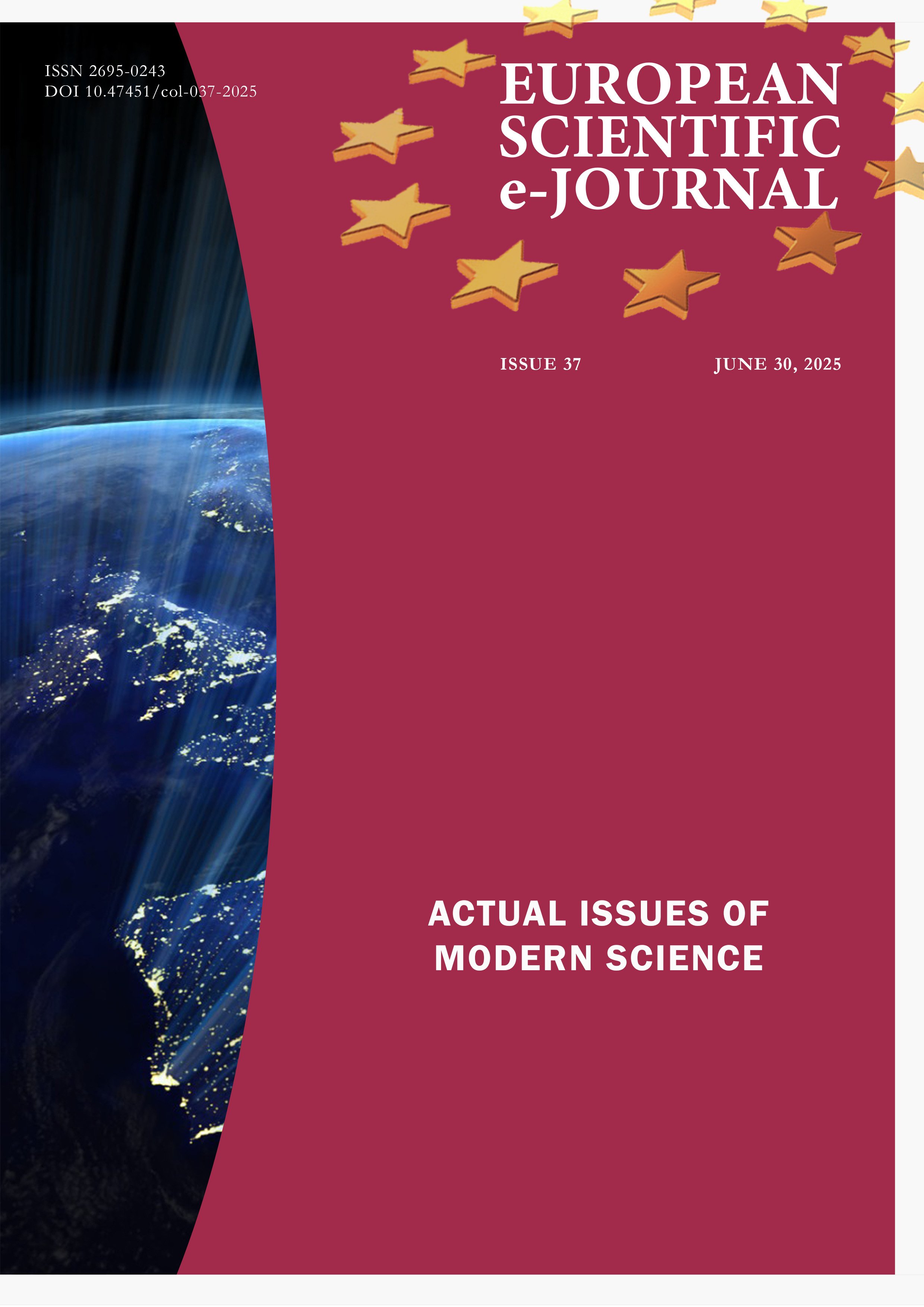Comparative Analysis of the Implementation of Information Technologies in Higher Education Institutions of the Czech Republic and Ukraine
DOI:
https://doi.org/10.47451/tec2025-09-05Keywords:
informatization of education, information technology, digitalization, information culture, IT competence, Ukraine, Czech RepublicAbstract
This article examines the theoretical and practical aspects of informatization of education as a key factor in improving the effectiveness of the educational process in higher education. The scientific novelty of the study lies in the comprehensive comparative analysis of the implementation of information technologies in higher education institutions of the Czech Republic and Ukraine. The article reveals new aspects of digital transformation in education by comparing institutional, infrastructural, and pedagogical approaches in two European countries with different socio-economic contexts. The originality also consists in identifying three interrelated levels of informatization — physical, logical, and applied — and establishing their influence on the quality of the educational process and digital competence formation. The object of the study is the process of informatizing higher education. The subject of the study is the methods, mechanisms, and results of implementing information technologies in universities of the Czech Republic and Ukraine. The purpose of the study is to determine the role and effectiveness of information technologies in enhancing the quality of higher education, as well as to identify similarities and differences in their implementation within Czech and Ukrainian educational systems. The author concludes that informatization is a strategic direction for educational development, ensuring the formation of a digital culture, enhancing the competence of teachers and students, and integrating them into the global information space.
Downloads
References
Dvorakova, Z. (2022). Digitalization and Executive Education: A Czech Case. In: E. Zaramenskikh, & A. Fedorova, (Eds.), Digitalization of Society, Economics and Management. Lecture Notes in Information Systems and Organisation, vol 53. Springer, Cham. https://doi.org/10.1007/978-3-030-94252-6_25
Flipped classroom in the Czech Republic: Implementing a flipped classroom project in environmental education. (2024). Proceedings of the 23rd European Conference on e-Learning (ECEL), 129-137. https://papers.academic-conferences.org/index.php/ecel/article/view/2732
Hlásná, H., Klímová, B., & Poulová, P. (2017). Use of information and communication technologies in primary education in the Czech Republic. International Electronic Journal of Elementary Education, 9(3), 681–692.
Holubová, I., & Jansa, P. (2020). 20 years of eLearning and blended learning at Czech universities. Proceedings of the 18th International Conference on Emerging eLearning Technologies and Applications, 868–875. Springer. https://doi.org/10.1007/978-3-030-52575-0_77
Kostolanyová, K., Cirus, L., Javorcík, T., & Šimonová, I. (2023). A new concept of the informatics curriculum in the Czech Republic: Teacher reflection on the first year of the transition period. Sustainability, 15(5), 4091. https://doi.org/10.3390/su15054091
Kozlova, D., Novák, P., & Hanušová, M. (2021). The use of ICT in higher education from the perspective of students’ perception: Case of the Czech Republic. Procedia Computer Science, 192, 4374–4382. https://doi.org/10.1016/j.procs.2021.08.221
Kubiatko, M. (2010). Czech university students’ attitudes towards ICT used in science education. Journal of Technology and Information Education, 2(3), 20–29. https://doi.org/10.5507/jtie.2010.045
Ovcharuk, O. (2020). Digital competence of teacher: International tendencies and frameworks. New Pedagogical Thought, 4(104), 15–21. https://lib.iitta.gov.ua/id/eprint/719492
Popel, M. V., & Shyshkina, M. P. (2018). The cloud technologies and augmented reality: The prospects of use. CEUR-WS, 2257, 23. arXiv:1807.01966. https://arxiv.org/abs/1807.01966
Stoika, O. (2021). Teacher’s digital competence in the European educational discourse. Educational Review. Kyiv University of Borys Grinchenko, 1, 45–53. https://edreview.kubg.edu.ua/index.php/edreview/article/view/156
Šimonová, I., & Poulová, P. (2014). E-learning reflected in research studies in the Czech Republic: Comparative analyses. Procedia – Social and Behavioral Sciences, 116, 1298–1304. https://doi.org/10.1016/j.sbspro.2014.01.386
Vakaliuk, T. A., Antoniuk, D. S., Morozov, A. V., & Soloviev, V. N. (2020). Green IT as a tool for design cloud-oriented sustainable learning environment of a higher education institution. E3S Web of Conferences, 166, 10013. https://doi.org/10.1051/e3sconf/202016610013
Voronkin, O. (2021). The perspectives of information and communication technology of education of students in higher educational institutions of Ukraine. Information Technologies in Education, 49, 149–157. https://ite.kspu.edu/index.php/ite/article/view/149
Published
Issue
Section
License
Copyright (c) 2025 European Scientific e-Journal

This work is licensed under a Creative Commons Attribution 4.0 International License.
The European Scientific e-Journal (ESEJ) is an open access journal. Articles are available free of charge as PDF files on the website of the European Institute for Innovation Development. PDF files can be previewed with Acrobat Reader from www.adobe.com.
All articles of the “Tuculart Student Scientific” are published under a Creative Commons Attribution 4.0 Generic (CC BY 4.0) International license.
According to the Creative Commons Attribution 4.0 Generic (CC BY 4.0) International license, the users are free to Share — copy and redistribute the material in any medium or format for any purpose, even commercially (the licensor cannot revoke these freedoms as long as you follow the license terms).
Under the following terms:
- Attribution — You must give appropriate credit, provide a link to the license, and indicate if changes were made. You may do so in any reasonable manner, but not in any way that suggests the licensor endorses you or your use.
- No additional restrictions — You may not apply legal terms or technological measures that legally restrict others from doing anything the license permits.


